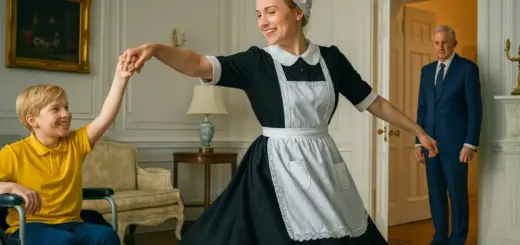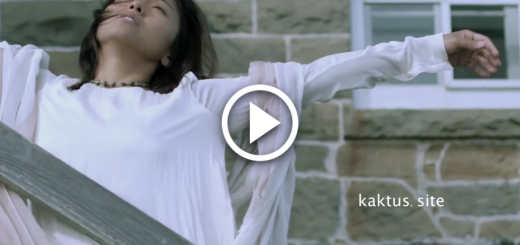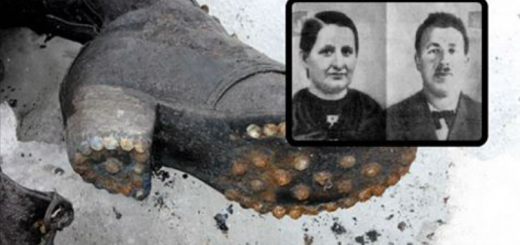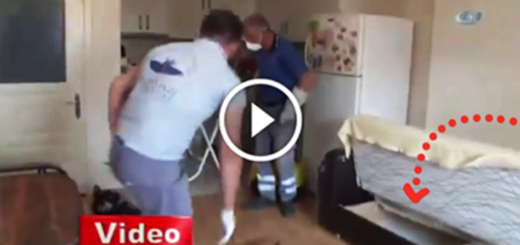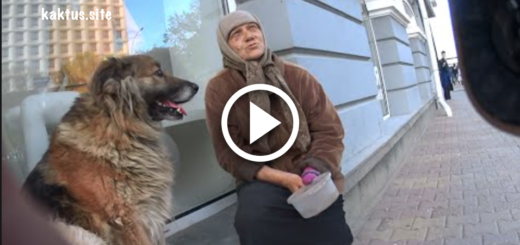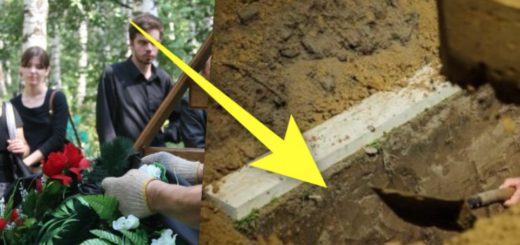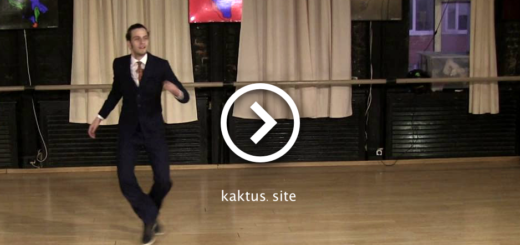The living room feels like a boardroom. Victoria sits primly on the cream sofa, legs crossed at the ankle, her blonde hair swept into a perfect chignon. Melissa perches beside her, studying her manicure with sudden fascination when I enter. My mother stands by the mantle, one hand resting on a framed family photo where we’re all smiling—a performance for the camera.
No one mentions Caleb. No one says they’re sorry. My father doesn’t waste time. He walks to the mahogany coffee table where a folder lies open, papers arranged in neat stacks. «We need to reallocate the trust with Victoria as trustee,» he announces, sliding a document toward me. «Sign here and here.»
I don’t reach for the pen. «What are you talking about?» Victoria uncrosses her legs and leans forward. «Destiny, you’re in no condition to manage this kind of money. We’re trying to help.»
My mother steps closer, her voice honeyed with false sympathy. «You’ve always been impulsive with finances. Remember that boutique you wanted to open after college? Thank goodness your father talked you out of it.»
I glance at Melissa, hoping for some flicker of the friendship we once shared. She meets my eyes briefly before looking away, her silence confirming her allegiance. «We’ve already spoken with Ethan’s lawyer,» my father says, tapping the papers. «Given your mental state, he agrees this is the prudent course.»
The words hit like physical blows. I pick up one of the documents, recognizing legal language about mental competency evaluations. Another page catches my eye: research on trust law dated fourteen months ago, when Caleb was first hospitalized. «You’ve been planning this since Caleb got sick,» I whisper, the realization burning through me. «While I was sitting beside his hospital bed, you were researching how to take his money if he died.»
Victoria sighs dramatically. «You’re exaggerating again. That’s exactly why we’re concerned.» My father pulls out another document, sliding it across the table. «If you refuse to sign, we’re prepared to petition for guardianship. The court will understand that grief has compromised your judgment.»
The full scope of their betrayal crystallizes. They dismissed Caleb’s illness for eight months, calling me overprotective when I insisted something was seriously wrong. Now I understand why. They were positioning themselves all along, waiting for the worst to happen.
My world shifts, reality reconstructing itself around this terrible truth. Memory after memory realigns in this new light. My mother ten months ago: «It’s probably just anemia, Destiny. You always make mountains out of molehills.» My father, when Caleb needed specialized treatment: «These doctors are taking advantage of your anxiety. He just needs vitamins.» Victoria, declining to visit him in the hospital: «Hospitals are depressing. Besides, he’s just going to get better anyway.»
I see a blueprint peeking out from beneath the trust documents. I pull it free: renovation plans for Victoria’s new house. A $200,000 kitchen remodel. A home theater. A pool with a waterfall.
«You never even visited him in the hospital,» I say, my voice steadying with the clarity of anger. «Not once in eight months.» Victoria tosses her head, impatient. «We all grieve differently, Destiny. Some of us just handle it better.»
The casual cruelty of her words stuns me. For the first time, I see my family clearly, not as the loving support system I’ve desperately tried to believe in, but as people who view Caleb and me as props in their perfect family image, useful only when convenient. «Why now?» I ask. «Why the sudden urgency?»
Victoria exchanges glances with my parents. Something passes between them, a silent communication that excludes me as it always has. «Fine. You deserve to know,» Victoria says finally. «Robert’s development company is facing some cash flow issues. The wedding might need to be postponed unless we secure additional funding.»
My mother fidgets with her pearl necklace. «And there’s the vacation property in Hilton Head. The market turned, and we’re a bit extended.» «We’re not villains, Destiny,» my father says, his tone softening to the one he uses when closing business deals. «We’re a family facing difficult circumstances.»
Melissa finally speaks, her voice small. «My divorce will be final next month. Victoria promised me a position at Robert’s company. I need this, Destiny. I have the twins to think about.» I see them now, not as cartoon villains, but as frightened people willing to sacrifice me to maintain their lifestyles, their status, their comfort.
«If you don’t sign, we’ll have to take more drastic measures,» my father warns, his kindly mask slipping. My mother reaches for my hand. «After everything we’ve done for you and Caleb all these years…» I almost laugh. What exactly have they done? Sent birthday cards with $20 bills? Called once a month to ask superficial questions about our lives?
«Don’t make this harder than it needs to be,» my father says, his voice hardening. «You’re not thinking clearly.» Victoria checks her watch. «We need this resolved within sixty days, before Robert’s next project financing deadline.» The desperation in their eyes tells me everything. They need Caleb’s money—my money—now, to solve their problems.
I stand, gather the documents, and place them back in the folder. «I need time to think,» I say, heading for the door. «Destiny,» my father’s voice carries the sharp edge I remember from childhood arguments. «Don’t walk away from this table.» I close the front door behind me with quiet finality.
In my car, I press my forehead against the steering wheel, overwhelmed by what just happened. My phone buzzes with a text from Angela. «How did it go? I’m here if you need to talk.» Before I can respond, another call comes through: Ethan’s parents. I answer with shaking hands.
«Destiny, dear,» Martha’s voice is warm with genuine concern. «We just heard about the funeral. We’re so sorry we couldn’t be there. We were in Europe and just got the news.» «We loved that boy so much,» George adds, his voice breaking. Their grief sounds real, their concern authentic, unlike the calculated performance I just witnessed from my family.
As I hang up, I remember something Ethan mentioned when setting up Caleb’s trust. «If you ever have questions, contact Richard Donovan. He’s the best trust attorney in the state.» For the first time today, I feel a flicker of hope. I’m not alone in this fight. Angela, who saw how I cared for Caleb every day. Ethan’s parents, who loved him without condition. Richard Donovan, who knows exactly what Ethan intended for Caleb’s money.
I start the car, my decision made. I won’t try to fight this battle alone. I reach for my phone and find Richard Donovan’s number in my contacts. «Mr. Donovan’s office?» a receptionist answers. «I need to speak with him immediately,» I say, surprising myself with the steadiness in my voice. «It’s about the Caleb Walker Trust.»
That same day, the law office of Richard Donovan gleamed with polished wood and leather-bound books. I clutch my folder of documents so tightly my knuckles turn white. After two sleepless nights researching trust law online, I’m still not sure I understand what rights I have or how my family could attempt to take Caleb’s legacy from me.
Richard rises from behind his mahogany desk when his assistant shows me in. He’s older than I expected, with silver hair and reading glasses perched on his nose. His handshake is firm, his eyes kind but assessing. «Mrs. Walker, please have a seat. I’m very sorry about your son.»
«Thank you.» My voice catches. I’ve heard those words dozens of times in the past week, but his tone carries genuine empathy rather than obligation. I slide the folder across his desk. «These are all the documents I have about Caleb’s trust. My ex-husband, Ethan, set it up before his company transferred him overseas.»
Richard opens the folder, scanning the contents with practiced efficiency. He nods occasionally, pausing to read certain sections more carefully. The silence stretches until I can’t bear it. «My family wants me to sign over control of the trust. They claim I’m not mentally stable enough to manage it because of my grief.» The words taste bitter on my tongue. «They didn’t even come to Caleb’s funeral.»
Richard looks up sharply. «They didn’t attend the funeral?» «No, my sister Victoria had her engagement party the same day. My parents and my former best friend Melissa chose to go to that instead.» He removes his glasses, pinching the bridge of his nose. «I remember when Ethan set up this trust. He was very specific about his intentions.»
Richard opens his desk drawer and pulls out a manila folder with Ethan’s name on the tab. My breath catches. I wasn’t expecting him to have separate records. «Ethan was exceptionally thorough,» Richard explains, extracting a notarized document. «This is his statement of intent for the trust.»
He hands me the paper, and I read Ethan’s familiar handwriting. «This trust is to secure Caleb’s future, and if the worst happens, to provide for Destiny, who sacrificed everything for his care.» Tears blur my vision. Even from across the ocean, Ethan had prepared for this possibility, had seen what I couldn’t bear to acknowledge.
«There’s more,» Richard says, turning his computer monitor so I can see it. «These are phone records from our office over the past year.» The spreadsheet shows multiple calls from numbers I recognize immediately: my parents’ landline and Victoria’s cell phone.
«They contacted you? About Caleb’s trust?» my voice sharpens. «Not me specifically. They called asking about trust provisions and beneficiary laws. My assistant flagged it because she recognized the names from Ethan’s file. They never actually spoke to an attorney here.» A clarity cuts through my grief for the first time in days. «They knew about the trust terms before Caleb died. That’s why they’ve been planning this.»
«It appears so,» Richard says, his expression hardening. «Mrs. Walker, I want to be very clear about something. This trust has explicit provisions preventing family interference. Ethan built in multiple layers of protection specifically to ensure the funds would go to Caleb or to you as the residual beneficiary. They have no legal standing to challenge this. The trust is ironclad.»
The weight pressing on my chest lightens slightly. «So they can’t take it?» «Not legally, no. But they might try other tactics. Claiming you’re mentally unfit due to grief, for instance.» I think of my mother’s dismissive text message at the funeral, Victoria’s cold calculation, and my father’s uncomfortable silence as they presented papers for me to sign.
«So I don’t need to fight them for the trust,» I say slowly, the pieces coming together. «I just need to prove their intentions.» Richard’s eyes narrow thoughtfully. «That would certainly strengthen your position. Do you have any documentation of their attempts to gain control?»
I pull out my phone, showing him my mother’s text messages from the funeral day. His eyebrows rise as he reads. «This is extremely helpful,» he says. «Now, I suggest we arrange a meeting with your family, on your terms, in a public place.»



